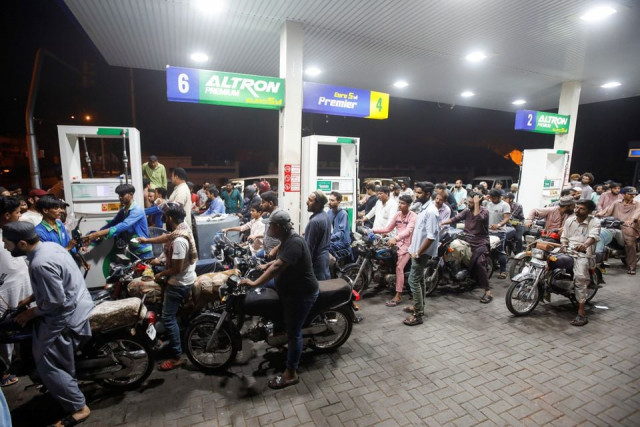Petroleum dealers urge banks to reduce merchant charges
Owners of petrol stations have stopped accepting credit, debit and privilege cards

Petroleum dealers and banks are at odds over merchant charges and as a result, petrol stations are no longer accepting credit, debit or privilege cards. There are concerns that the campaign to promote digital transactions in the country will be hampered by this conflict.
For two months, the owners of petrol stations have stopped accepting any kind of credit, debit or privilege cards from clients in the way of payment. This has discouraged people from using cards to make transactions and negatively impacted bank card operations.
Sources told the Express Tribune that “Since banks collect merchant charges of Rs1.60- Rs1.75 per litre of petrol from petroleum dealers, who use credit and debit cards, profit margins for pump owners are lower as compared to cash transactions.” “When gas prices were lower and pump sales were higher, the relevant oil marketing corporations used to cover half of the merchant charges levied by petrol dealers for transactions made with credit and debit cards but now things have changed. Petroleum product prices have increased, resulting in lower sales volumes and higher business costs for dealers,” explained Shoaib Khanji, a petroleum dealer. “In addition, oil marketing companies no longer agree to cover half of the merchant charges. As a result, owners of petrol pumps do not take credit, debit or privilege cards because petroleum dealers are having trouble covering merchant fees with their low rate of profit,” added Khanji.
However, oil marketing company Gas and Oil Pakistan Limited (GO) has made it clear that they have not sent any directives to their petroleum dealers telling them not to accept payments made using credit or debit cards. In this situation, GO splits certain expenses with its retail outlets in the form of merchant charges.
“Bank merchant charges are calculated as a percentage of fuel prices. We think merchant charges should be decreased to promote the use of digital payments given the low margins on high-value fuel products,” stated GO’s spokesperson.
He noted that the oil companies’ advisory council has also highlighted the matter and has urged the State Bank to instruct banks to lower these charges on petroleum products.
Published in The Express Tribune, September 27th, 2022.
Like Business on Facebook, follow @TribuneBiz on Twitter to stay informed and join in the conversation.


















COMMENTS
Comments are moderated and generally will be posted if they are on-topic and not abusive.
For more information, please see our Comments FAQ